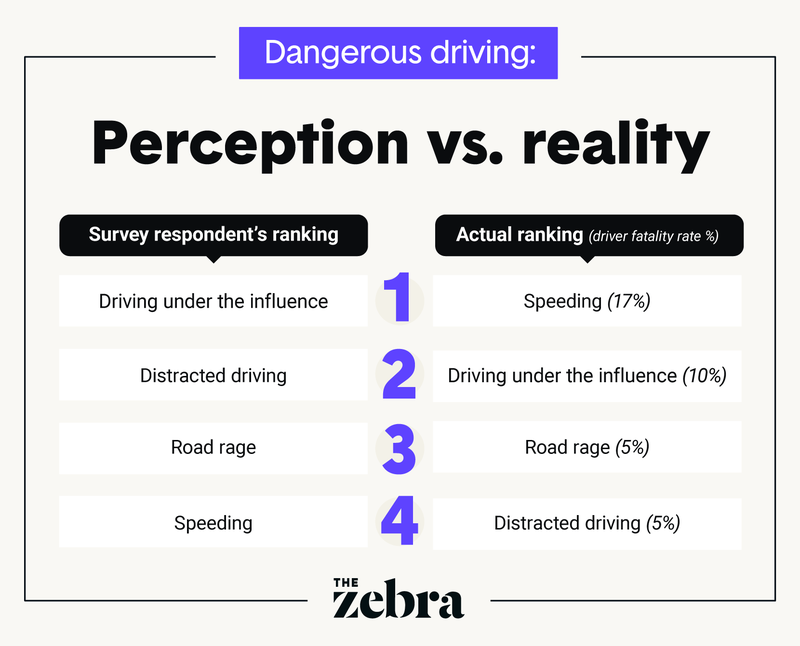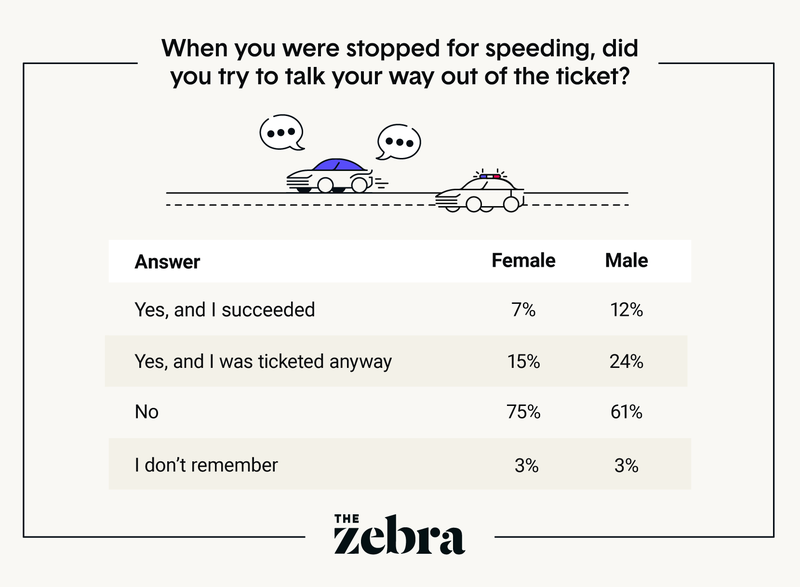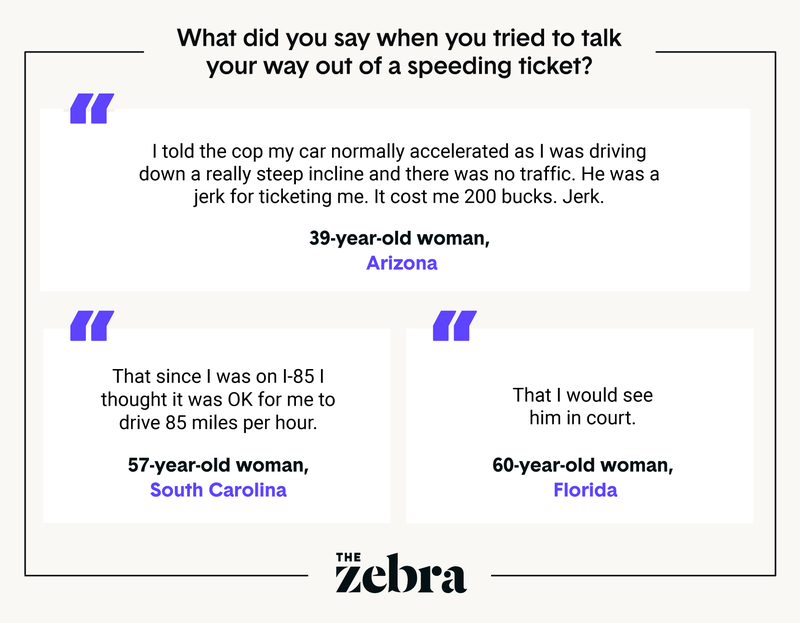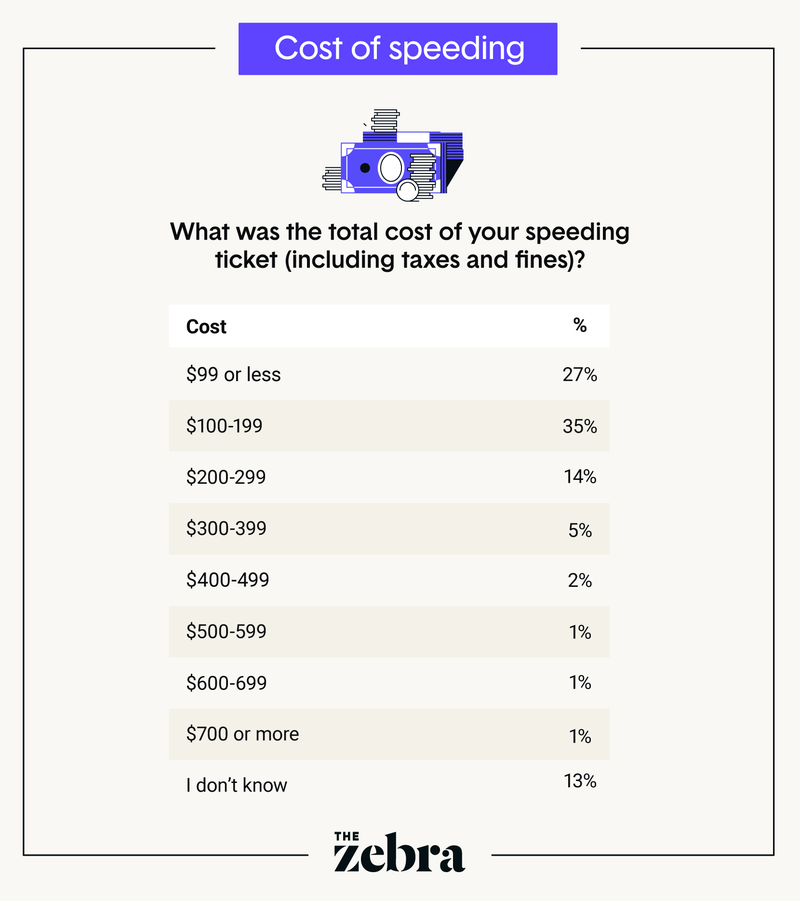9 in 10 drivers admit to speeding, even though 8 in 10 know it’s dangerous
U.S. drivers contradict themselves when it comes to speeding. Of the 87% of drivers who admit to speeding at least a few times a year, 35% say it's never acceptable. Seventy-nine percent of survey respondents said that speeding is unacceptable in a school zone, while only 64% said that it’s unacceptable with a child in the car.
But the most serious contradictions drivers hold about speeding have to do with how risky it is. It’s a classic case of “it won’t happen to me”: A whopping 82% of drivers agree that speeding is dangerous, but only 16% say that when they don’t speed, it’s because they’re concerned for their safety.
Forty percent of respondents said that speeding is acceptable when there isn’t much traffic. However, other drivers aren’t the only dangers on the road. Only 39% of fatal crashes are due to a collision with another car[2]. The majority – 52% – are due to a crash with an object.

Survey respondents also ranked speeding as the least dangerous of four driving behaviors, after driving under the influence, distracted driving and road rage. But, in fact, of those four behaviors, speeding is the most related to traffic fatalities[2]. Seventeen percent of driver deaths are associated with speeding, compared to 10% with driving under the influence, 5% with road rage and 5% with distracted driving.
"Talking your way out" of a ticket typically isn't successful
Most of the time, drivers aren’t going to get out of a traffic stop without a ticket. Of the respondents who were stopped for speeding, 72% reported that they were ticketed, while 26% said they got a warning.

Trying to talk your way out of a ticket can work, but it doesn’t happen often. Of the 72% of respondents who were stopped and ticketed, 29% tried to talk their way out of it; one in three of that group managed to. Women tried less often, but talked their way out at a higher rate than men when they did.

Speeding costs an average of $1,177 in insurance rate increases over three years
Speeding tickets are expensive. One in three respondents reported paying $100-199 for their ticket alone, but some paid more than $700.

However, the one-time cost of a speeding ticket is just part of the expense. Eighty-three percent of respondents said that they know that getting a ticket will increase their insurance rates, but only 4% were worried about their insurance rate increasing. They should be: The true cost of speeding is the ticket plus at least three years of insurance rate hikes. Seventy-six percent of speeding tickets cost less than $300, but over three years, having the violation on their record will run drivers $1,177 on average[3] – perhaps taking away from other areas of their budgets.
Rate increases after traffic violations, including speeding, vary state by state. But speeding is special: Most states have higher penalties the faster a driver is going over the limit. So someone in New York who’s ticketed for driving eight miles an hour over the limit will pay $85 more per year, but someone in California would pay $792 more per year for the same offense. A driver in Texas going 18 miles per hour over the limit will pay $122 per year in insurance rate increases, but in Michigan, drivers will pay a whopping $1,920 more – for at least three years.






